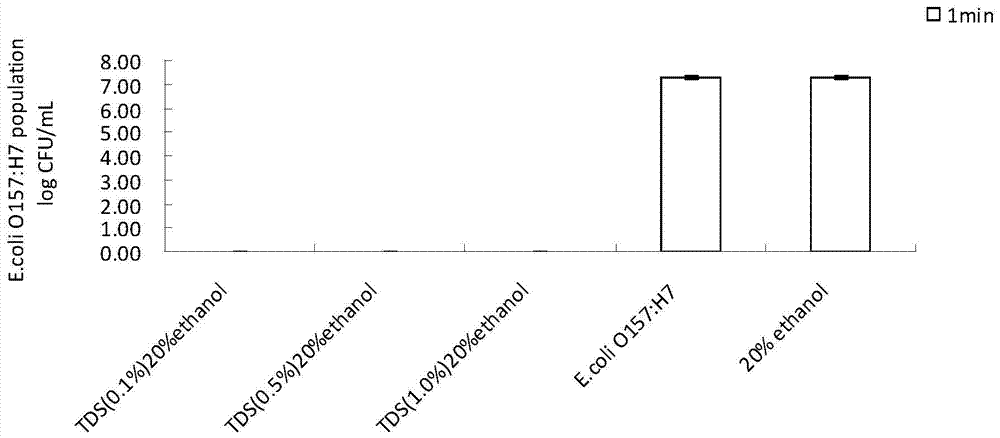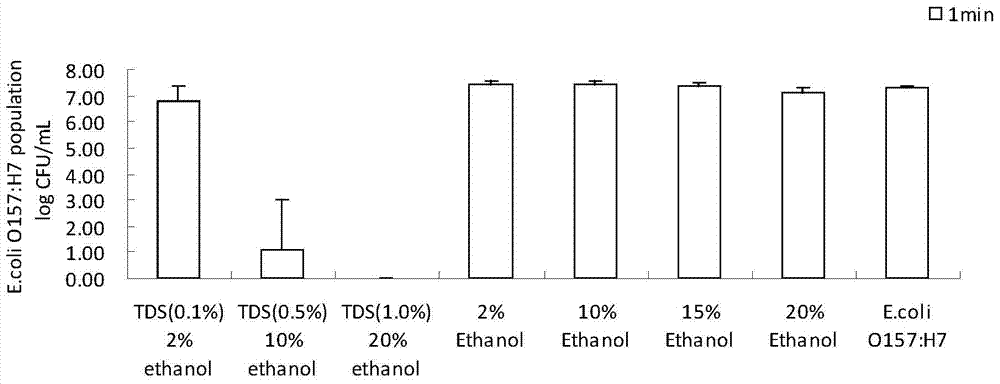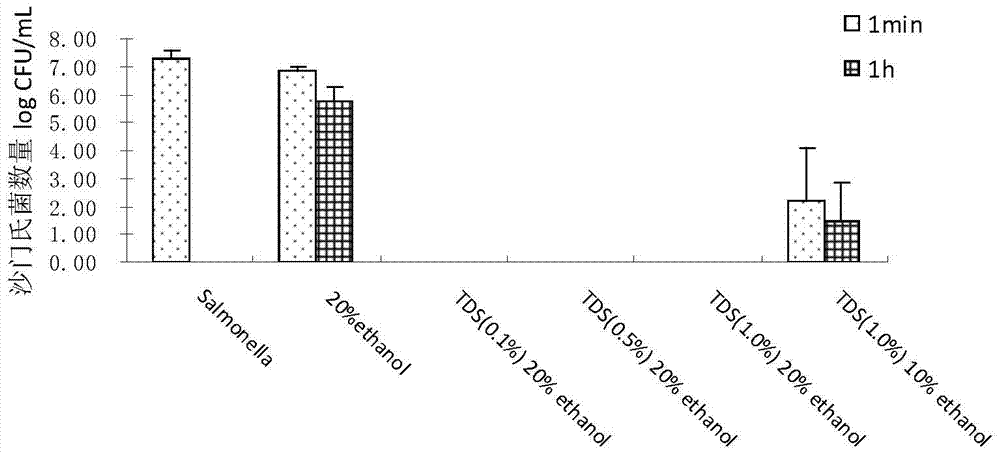Bactericides and their applications
A fungicide, listeria technology, applied in the direction of fungicide, application, biocide, etc., can solve the problems of carcinogen formation, poor sterilization effect, complex surface structure of vegetables, etc., and achieve the effect of easy preparation
- Summary
- Abstract
- Description
- Claims
- Application Information
AI Technical Summary
Problems solved by technology
Method used
Image
Examples
Embodiment 1
[0039] Embodiment 1, surfactant thiamine dilauryl sulfate (TDS) bactericidal effect
[0040] Killing effect of TDS on E.coli O157:H7.
[0041] Methods: TDS mother solution was prepared with 100% ethanol, and then diluted with sterile water to obtain TDS working solution with a concentration of 0.1%, 0.5% and 1.0%, and the ethanol concentration was about 2%, 10% and 20%, respectively. Take 10 μL of coli O157:H7 (concentration is about 9 log CFU / mL) with a pipette gun, respectively add to 990 μL of the TDS solution of different concentrations above, mix well, place at room temperature for 1 min and 24 hrs, then draw 100 μL to coat the plate ( Tryptone soybean agar medium, TSA), cultivated at 37°C for 24h, counted, and the experimental value is the average value of three repetitions.
[0042] The obtained results are shown in Table 1.
[0043] Table 1. The effect of TDS on the quantity of E.coli O157:H7
[0044]
[0045] Note: The initial quantity of E.coli O157:H7 is 7.14±...
PUM
 Login to View More
Login to View More Abstract
Description
Claims
Application Information
 Login to View More
Login to View More - R&D
- Intellectual Property
- Life Sciences
- Materials
- Tech Scout
- Unparalleled Data Quality
- Higher Quality Content
- 60% Fewer Hallucinations
Browse by: Latest US Patents, China's latest patents, Technical Efficacy Thesaurus, Application Domain, Technology Topic, Popular Technical Reports.
© 2025 PatSnap. All rights reserved.Legal|Privacy policy|Modern Slavery Act Transparency Statement|Sitemap|About US| Contact US: help@patsnap.com



